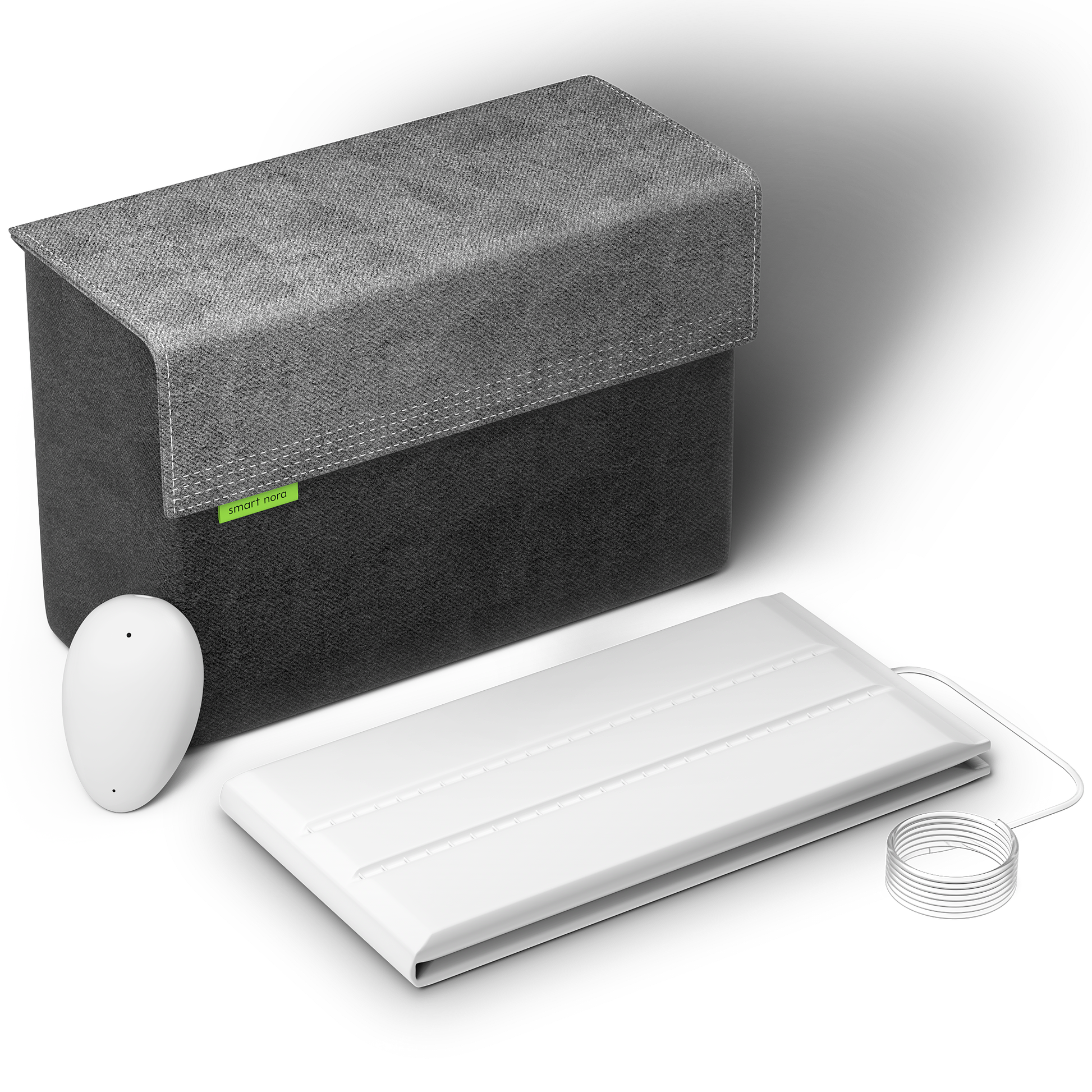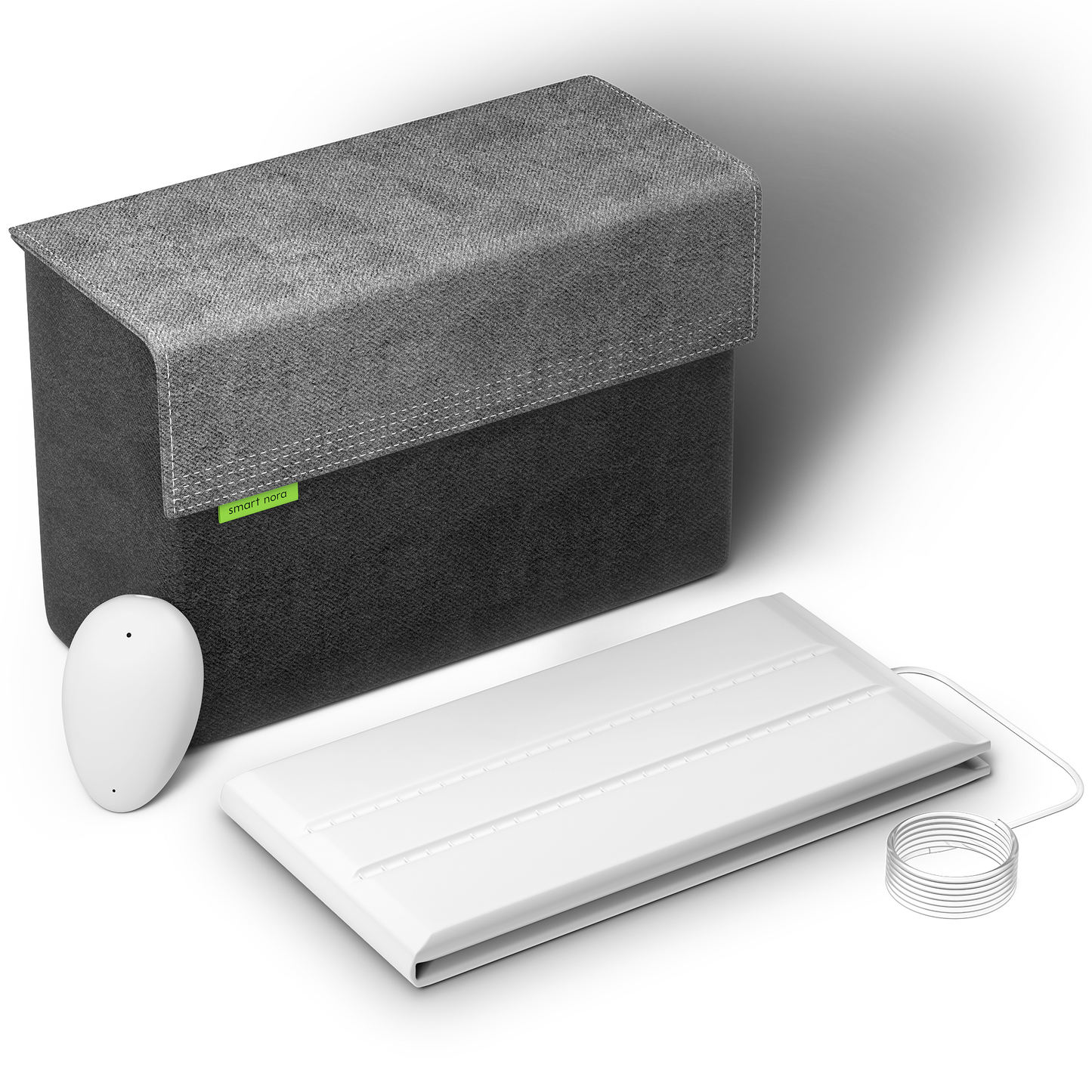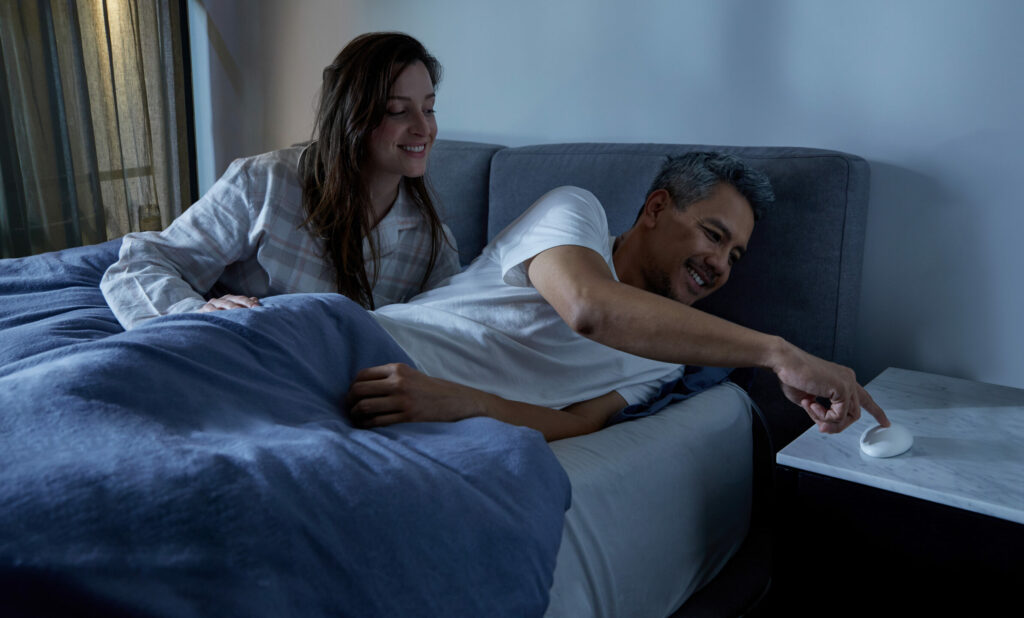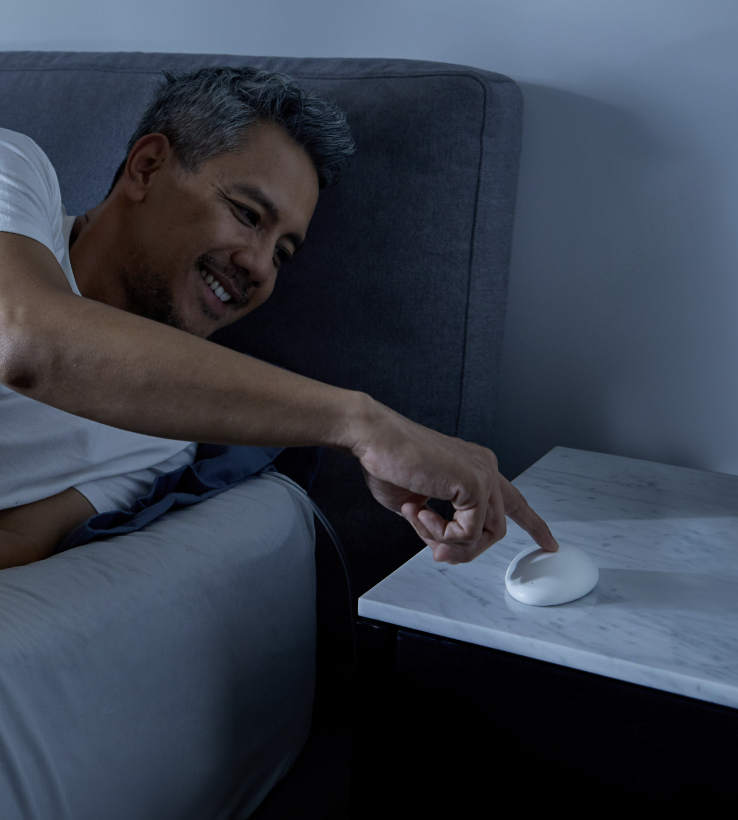You probably already know your body has an internal clock—the circadian rhythm—which it uses to keep track of…what? Time? More like it uses the clock to keep track of our alertness levels relative to environmental cues such as the Sun.
It explains a lot about why our body is thrown out of whack when jet-lagged. Or why some people are night owls while some others are morning larks. It all comes down to your body clock.
But did you know, like every other clock in the world, your internal clock also has a physical location? The suprachiasmatic nucleus (SCN) in our brain – that’s the name and location of your circadian clock. If you are wondering what it is, how it works, and how it impacts your sleep, then keep reading.
What is Circadian Clock/Rhythm?
Circadian rhythms are mental, behavioral, and physical changes that follow a 24–hour cycle and are a part of your circadian clock. This clock is located in your brain – right above the nerves where your eyes cross. It has about 20,000 neurons that receive information from light that passes through your eyes – yes, these cells are light-sensitive.
And like you would expect from a clock – it is made up of complex machinery (read: nerve cells) that helps sync your body’s functions.
It runs in the background, never disturbing you but always helping you carry out essential tasks. What essential tasks, you might ask? It controls various physiological events, including metabolism, insulin secretion, and even learning and memory, and yes, your sleep-wake cycle.
It takes its cues from environmental factors like sunlight, meaning your circadian rhythms are tied to the day and night cycle. So if you think your sleep is consistent—and even restorative—congratulations, your internal and external cycles are aligned. And if you face difficulty sleeping, yes, you guessed, your circadian clock is not taking its cues as it should from the day-night cycle. Not just sleep, though; this 24–hour cycle can impact various aspects of your mental and physical health.
How Does Circadian Rhythm Work?
Have you ever wondered how you wake up in the morning (albeit a little late sometimes) without setting up an alarm? Or how do you fall asleep even while watching TV? Research suggests the individual clocks in your body tissues keep pace with this master circadian clock — all working together to help you sleep on time. And you challenge them by deliberately staying up all night.
On a serious note, though, SCN has light-sensitive cells. These cells take cues from light entering our eyes and respond by oscillating back and forth, just as you would expect from a pendulum clock. The SCN then sets off a chain reaction – this reaction impacts everything from our body temperature to sleep drive.
And for a long time, it was believed that circadian rhythm was the ‘king’ of rhythm generation. But, as per a study, the circadian system is hierarchically organized. This means that most cells and tissues of the body keep a check on time. Still, the SCN works as the master regulator – synchronizing those oscillations throughout the body. This regulation occurs via genes that can alter the number of different proteins produced – this keeps the time adjusted. And, of course, the same thing happens in individual cells and tissues.
And this regulation is important because the clocks in our body tissues are some six-eight hours behind the circadian clock. It is because these cell clocks do not take their cues from the sunlight. So it falls upon the circadian clock to keep the cells in check by signaling them through nerve connections or by releasing substances in the blood.
But now, let’s zoom in on what actually happens:
Every morning, sunlight creeps in from behind your blinds. This light increases our body temperature, which sets off the release of a hormone called cortisol. It is this hormone responsible for waking you up by making you alert.
Now when the Sun is no longer setting off our SCN, our body temperature, and levels of melatonin rise in our body. Melatonin regulates our sleep cycle by staying elevated all night and helping us sleep. But then, when the cells in SCN sense light, they suppress melatonin production. This is why evening light exposure to screens can disrupt our circadian rhythm, thus impacting sleep.
Does Our Body Clock Ever Change?
Do clocks change the time with … time? Well, circadian clocks sure do, during three key points in our lives – infancy, adolescence, and old age. But, of course, you probably know this as well, having experienced drastic changes in your adolescent years.
Babies do not have a circadian rhythm. They need 18 hours of sleep anyway, broken up into smaller chunks. They can sleep for longer blocks when they turn six months of age. Now when these children become teenagers, they experience what is known as a sleep phase delay.
About 1 to 16% of teenagers go through this phase, resulting in reduced homeostatic sleep pressure, delayed and lengthy circadian rhythm, and insensitivity to the clock-resetting procedure by morning light. Due to these changes, their melatonin levels don’t rise until later in the evening, making it harder for them to fall asleep before 11 pm. So, it is probably not your teenager rebelling against the rules; maybe their sleep is genuinely not under their control.
It also results in heightened cognitive activity. But since they sleep late, they cannot get their fix of healthy eight hours of sleep, which can result in the following:
- Significant daytime sleepiness
- Anxiety
- Depression
- Potential school dropouts
But then these teenagers grow up and may experience a change in their sleep drive … again. As we age, our body clock loses its consistency. As a result, they quickly become tired and wake up before the Sun in the morning. This means they sleep less than they should, because of which they slowly experience cognitive decline. Plus, this dysfunction in circadian rhythms is more common in people facing neurodegenerative diseases like Alzheimer’s.
Body Clock and Sleep Drive
So it is this circadian rhythm that affects our alertness – directly impacting how sleepy or wakeful we will be during 24 hours. Generally, people are more tired during lunchtime—the infamous afternoon slump—or right after midnight. This usually happens because our body temperature drops at night. It rises during the morning. But then it again drops between 2 to 4 pm – explaining why you experience that energy slump. However, no scientific evidence supports the relationship between body temperature and the sleep cycle.
That said, it is not just our body clock that controls our sleep drive – because this could mean we could keep our bedroom lights on and never fall asleep. But we know that’s not true. And here’s why – another factor plays a very important role.
Sleep/wake homeostasis is a state of equilibrium – it balances our need for sleep with our need for wakefulness. So if we’ve been awake all day, our sleep drive tells us it is time to sleep. But if our sleep drive is off – we may feel tired during the day and charged up during the night. It can result from daylight saving time and jet lag.
But then again, you can throw off your internal clock by working late at night or working irregular hours. Factors like exercise, hormones, and medications can also affect your body clock. By and large, however, circadian rhythms are programmed by our genes.
Regardless, you can dial back your circadian rhythm by sleeping and waking up consistently at the same time, sleeping for more than 7 hours, and adjusting your caffeine intake.













